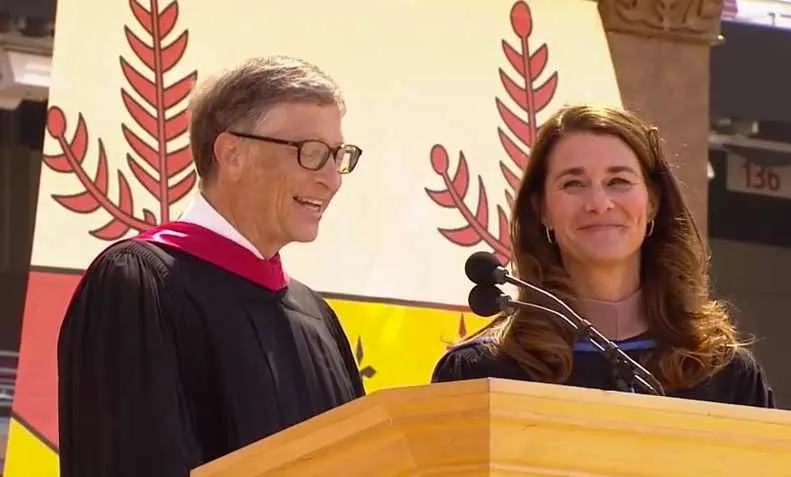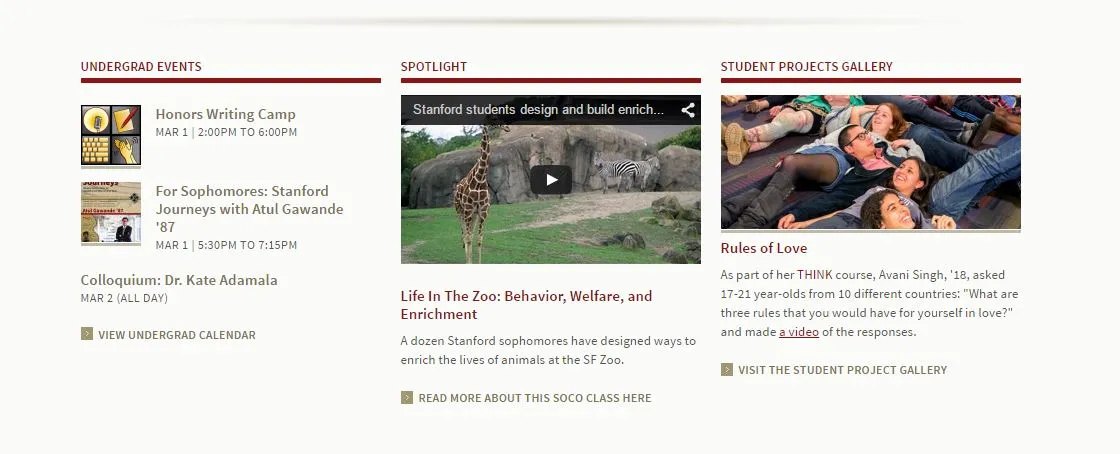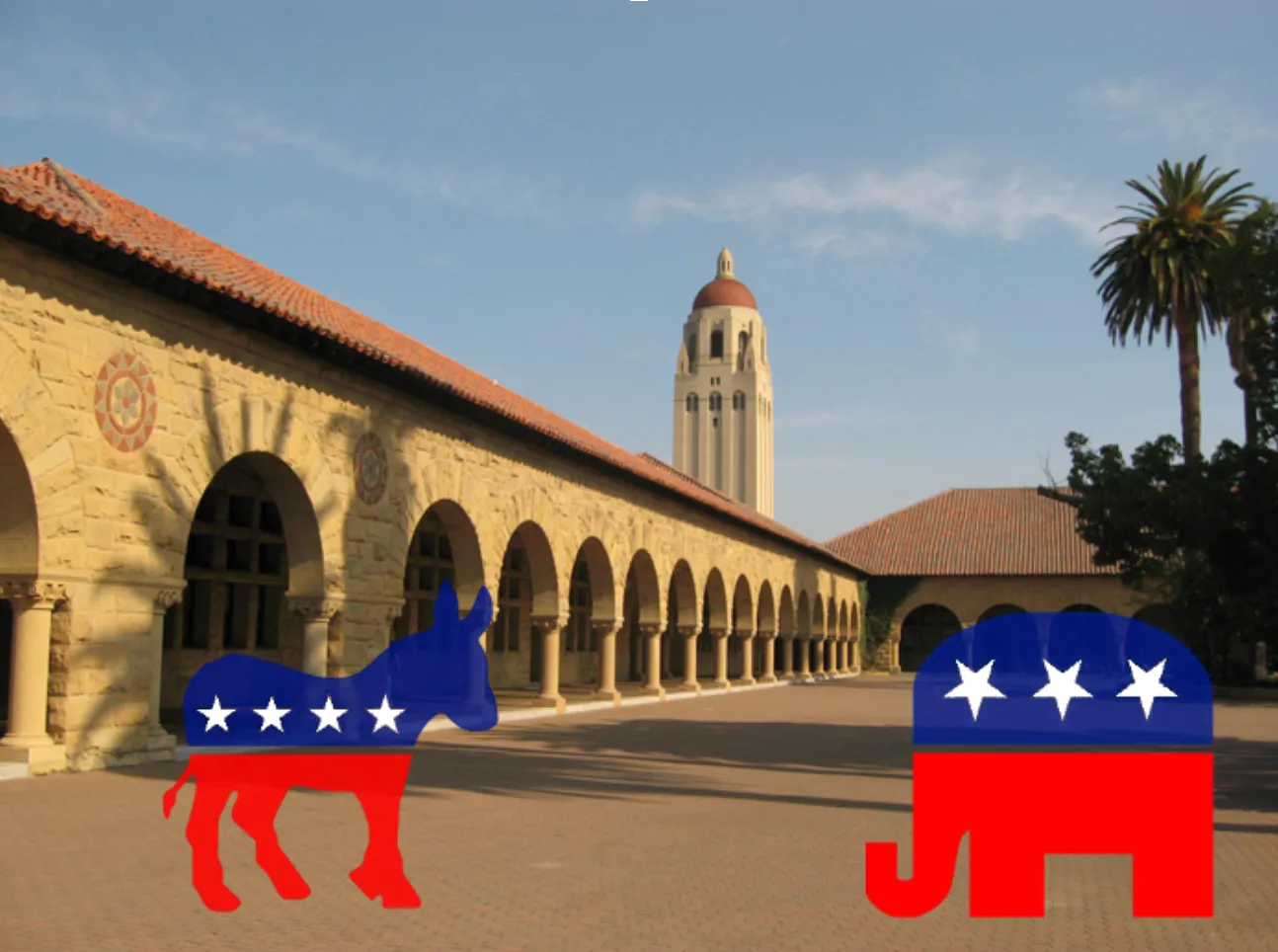Table of Contents

“Over the next generation, you Stanford graduates will lead a new wave of innovation and apply it to your world,” said Bill Gates at Stanford’s commencement in June, reminding graduates of their imminent impact on the human race. “Which problems will you decide to solve? If your world is wide, you can create the future we all want. If your world is narrow, you may create the future the pessimists fear.”
Stanford’s techy-fuzzy divide, however, continues to permeate the academic and social culture around campus. It is a classification of the “type” of student you are. This notion is so popular that the 2013 performance from the theatrical group Gaieties showcased the fuzzy and techy divide. Some common phrases heard around campus include “that class is way too fuzzy for me” and “only techy people would like that class”. The divide creates an atmosphere in which students perceive majors as substitutes: if students enroll in rigorous computer science classes, they will get a better job as a software developer; otherwise if they decide to take more political science classes, they will become better suited to navigate the political sphere.
The techy-fuzzy divide can be traced back to the notion of labor specialization coined by Adam Smith in his 1776 treatise, The Wealth of Nations. Students, like the pin factory workers in Smith’s book, can grow more productive by focusing their energies on a single area of study and excelling in it. Since Smith published his book, increasing specialization of labor has been hailed as a sign of economic progress. In the book, Smith illustrates a pin factory as an example of how pin output can be maximized by the division of labor: people would become so good at their specific tasks that there would be “a proportionable increase of the productive powers of labour.”
Although societies divided labor before Smith formalized the notion, his insight coupled with the Industrial Revolution fueled specialization on a scale never before seen in human history. The new mechanized economy helped to increase the categorization of education. At Stanford, perceived differences in prestige mirror the same differences in labor specializations and in some ways this is beneficial: it helps to satisfy the increased demand our economy has for specific skills.
A result of universities and students adopting the notion of specialization is that many majors are seen as a means to an end. That Stanford requires a major, encouraging students to think of the terms techy and fuzzy as substitute identities. We learn that a degree in engineering will give us the tools to build something, and a degree in computer science will teach us how to code. We learn that there is a direct link between our major and the role we will play in the post-college economy. In some ways, this is a good thing: under the principle of division of labor, you will maximize your output.
The great wall between techies and fuzzies, a division which was considered a staple of Stanford’s culture, is now being challenged by new degrees that attempt to bridge the once exclusive skill sets. The CS+X program, for example, aims to “integrat[e] the humanities and computer science.” Joint majors under the CS+X program include CS+Classics, CS+Philosophy, and CS+History. These joint majors focus on the intersection of computer science with their respective fields — for example, CS+Philosophy has a heavy emphasis on logic classes. CS+X is a step in the right direction, but it focuses primarily on studying the “X” explicitly with the purpose of finding computer science applications. The joint major program allows students to maximize their throughput in a computer science field. It leaves little room for the computer science students to explore philosophy and English in their purest forms.
The joint majors are a step in the right direction. We can better conceive of ends to employ STEM majors by studying other fields that deal with the human experience. Broadening your studies helps you to advance in the workplace because a combination of interdisciplinary vision and computer science skills is even more in demand than being a code monkey. It lets you consider the ultimate ends of the labor, and the world it creates. Thinking of fuzzies and techies as complementary skills rather than substitutes can translate into personal and career success.
The mindset of defining the intellectual self categorically, a practice common at Stanford, is captured by William Deresiewicz’ notion of “excellent sheep” — where today’s top university education renders its students “incapable of talking to people who aren’t like you.” Specialization of labor can help us make more pins and better programs, but it fails to tell us if and why we need them. Universities have trended towards making students as suited with trade skills as possible at the cost of depriving them the benefits that come from exiting the boundaries of their intellectual comfort zone. Stanford is moving towards its mission to give students “the studies and exercises directed to the cultivation and enlargement of the mind,” rather than their brains. We optimize our personal throughput on our designated task every day: we spend hours learning vim shortcuts and writing bash scripts to save seconds. It seems that Stanford is beginning to institutionalize the fact that more important than optimizing pin output is understanding the world that the pin creates.








